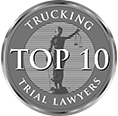How Do You Prove Fault in a Truck Accident in Maine?
Trucking accidents are serious and often fatal events. According to reports by the U.S. Department of Transportation Fatality Analysis Reporting System (FARS), a total of 4,119 people died in large truck crashes in 2019. The vast majority of those deaths were occupants of other motor vehicles. Unfortunately, many of those accidents are caused by poorly maintained brakes, driver fatigue, or the failure of the trucker driver to follow well-established safety rules. So how does a truck accident victim prove that the driver or the trucking company was largely at fault for the accident? Contact an attorney that handles trucking accidents to explain what you need to know about proving fault in a truck accident.
What Kind of Evidence Can Be Collected From a Truck After an Accident?
Trucking accidents are more complex than accidents involving non-commercial passenger vehicles. Truck drivers must adhere to strict regulations that control how many hours a day a driver can work without a break and how often trucks need to be serviced and maintained. Obtaining internal company documents can be an important step in proving your case. Police reports, witness accounts, and other types of evidence can pinpoint the true cause of the accident and assign fault.

Other types of important evidence include: driver logbooks, which show how many miles a driver has traveled and for how many hours; truck inspection reports; weigh station tickets; and post-accident drug and alcohol testing results. In addition, certain models of trucks may contain an Event Data Recorder (EDR), commonly referred to as a ‘black box.’ Much like the black box of an airplane, the EDR records a large amount of data (such as speed, brake usage right before the crash, seatbelt use, and much more) that can be critical in proving liability.
Who Is Financially Liable for a Truck Accident in Maine?
In a truck accident, there may be more than one party responsible for a victim’s injuries. If the trucking company did not adhere to federal standards for maintenance and care of their fleet and failed to perform basic preventive services such as brake adjustments (a common cause of accidents), then it may be responsible for the accident.

The driver’s conduct may also be a contributing factor. For example, some drivers may be operating their trucks for excessively long hours or driving dangerously (e.g. at a high-speed or following too closely). In other cases, the loading or shipping company may have improperly prepared the cargo and caused it to move or shift, triggering the accident. Even the manufacturer of a truck or truck parts can be liable if there was a flaw in any piece of equipment that contributed to the accident. A truck accident lawyer can be instrumental in helping you identify which party or parties are financially responsible for your accident.
What Happens If I Was Partially at Fault for the Truck Accident?
In some cases, a combination of unfortunate circumstances can lead to a serious truck accident. If, for example, your accident was caused by a tired, overworked truck driver who failed to apply his brakes when you distractedly veered into the truck’s lane because you were temporarily blinded by sunlight, you may share a percentage of fault for the accident.

Fortunately, even if you were partially at fault, this does not automatically make you ineligible to receive compensation. Maine utilizes the modified comparative negligence rule, which still allows compensation in cases involving shared fault, as long as you are less at fault than the defendant. However, if you are partially at fault, the jury will have the opportunity to reduce your award by the appropriate amount.
How Can I Recover Compensation if I Was Hurt In a Truck Accident?
There are many possible avenues to recover compensation after a truck accident, depending on the specifics of your case. In certain instances, you may be able to settle your claim on your own with the opposing insurance company.

Unfortunately, however, insurance companies often come up with reasons not to fairly compensate victims, or not to compensate them at all. They will often offer low settlements in an attempt to cut costs and dismiss your case as quickly as possible, leaving you without the adequate monetary resources you need to pay for your medical care and restore any damaged property, let alone to fairly compensate you for pain and suffering. If you have been seriously injured, you will likely need a high-caliber team of personal injury and truck accident attorneys on your side, and fair compensation will likely require a civil lawsuit in court.
The team at Gideon Asen has the knowledge and skills to help build a strong case on your behalf, negotiate with the insurance companies and take your case to court when necessary. We will help you understand your accident from a legal standpoint, conduct our own investigation and gather all evidence necessary to help you fight back. Contact us for a free case evaluation to see how we can help.

















